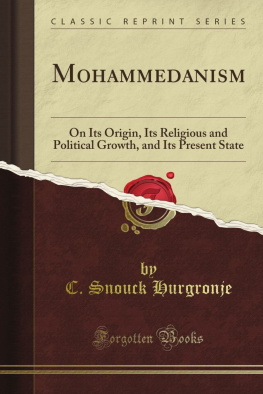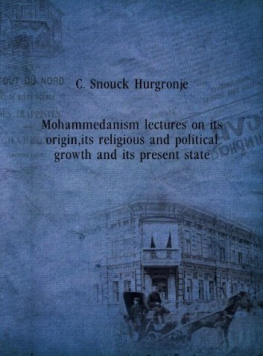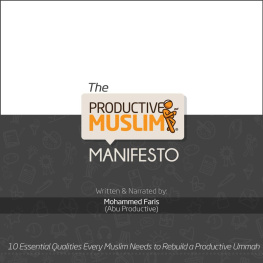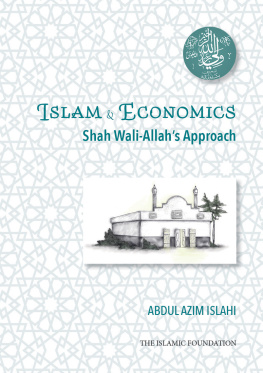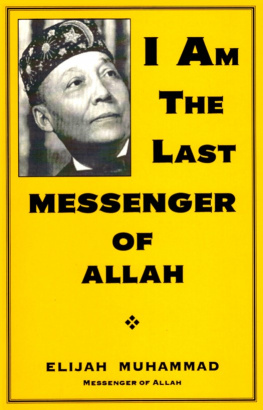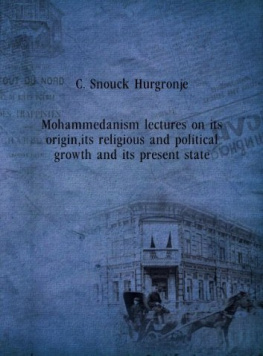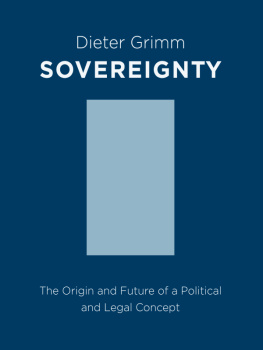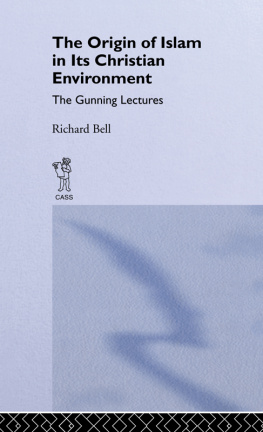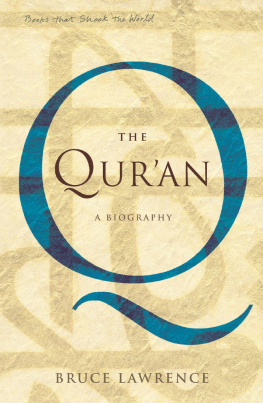The Project Gutenberg EBook of Mohammedanism, by C. Snouck Hurgronje
This eBook is for the use of anyone anywhere at no cost and withalmost no restrictions whatsoever. You may copy it, give it away orre-use it under the terms of the Project Gutenberg License includedwith this eBook or online at www.gutenberg.net
Title: Mohammedanism Lectures on Its Origin, Its Religious and Political Growth, and Its Present State
Author: C. Snouck Hurgronje
Release Date: November 21, 2003 [EBook #10163]
Language: English
*** START OF THIS PROJECT GUTENBERG EBOOK MOHAMMEDANISM ***
Produced by Imran Ghory, Stan Goodman, Lazar Liveanu and PG DistributedProofreaders
AMERICAN LECTURES ON THE HISTORY OF RELIGIONS
SERIES OF 1914-1915
Mohammedanism
Lectures on Its Origin, Its Religious and Political Growth, and Its Present
State
by
C. Snouck Hurgronje
Professor of the Arabic Language in the University of Leiden, Holland
1916
ANNOUNCEMENT.
The American Lectures on the History of Religions are delivered underthe auspices of the American Committee for Lectures on the History ofReligions. This Committee was organized in 1892, for the purpose ofinstituting "popular courses in the History of Religions, somewhat afterthe style of the Hibbert Lectures in England, to be delivered by the bestscholars of Europe and this country, in various cities, such as Baltimore,Boston, Brooklyn, Chicago, New York, Philadelphia."
The terms of association under which the Committee exists are as follows:
1.The object of this Committee shall be to provide courses of lectures onthe history of religions, to be delivered in various cities.
2.The Committee shall be composed of delegates from the institutionsagreeing to co-operate, with such additional members as may be chosen bythese delegates.
3.These delegatesone from each institution, with the additional membersselectedshall constitute themselves a council under the name of the"American Committee for Lectures on the History of Religions."
4.The Committee shall elect out of its number a Chairman, a Secretary,and a Treasurer.
5.All matters of local detail shall be left to the co-operatinginstitutions under whose auspices the lectures are to be delivered.
6.A course of lectures on some religion, or phase of religion, froman historical point of view, or on a subject germane to the study ofreligions, shall be delivered annually, or at such intervals as may befound practicable, in the different cities represented by this Committee.
7.The Committee (a) shall be charged with the selection of the lectures,(b) shall have charge of the funds, (c) shall assign the time for thelectures in each city, and perform such other functions as may benecessary.
8.Polemical subjects, as well as polemics in the treatment of subjects,shall be positively excluded.
9.The lectures shall be delivered in the various cities between themonths of September and June.
10.The copyright of the lectures shall be the property of the Committee.
11.The compensation of the lecturer shall be fixed in each case by theCommittee.
12.The lecturer shall be paid in installments after each course, until heshall have received half of the entire compensation. Of the remaining half,one half shall be paid to him upon delivery of the manuscript, properlyprepared for the press, and the second half on the publication of thevolume, less a deduction for corrections made by the author in the proofs.
The Committee as now constituted is as follows: Prof. Crawford H. Toy,
Chairman, 7 Lowell St., Cambridge, Mass.; Rev. Dr. John P. Peters,
Treasurer, 227 W. 99th St., New York City; Prof. Morris Jastrow, Jr.,
Secretary, 248 So. 23d St., Philadelphia, Pa.; President Francis Brown,
Union Theological Seminary, New York City; Prof. Richard Gottheil, Columbia
University, New York City; Prof. Harry Pratt Judson, University of Chicago,
Chicago, Ill.; Prof. Paul Haupt, Johns Hopkins University, Baltimore, Md.;
Mr. Charles D. Atkins, Director, Brooklyn Institute of Arts and Sciences;
Prof. E.W. Hopkins, Yale University, New Haven, Conn.; Prof. Edward Knox
Mitchell, Hartford Theological Seminary, Hartford, Conn.; President F.K.
Sanders, Washburn College, Topeka, Kan.; Prof. H.P. Smith, Meadville
Theological Seminary, Meadville, Pa.; Prof. W.J. Hinke, Auburn Theological
Seminary, Auburn, N.Y.; Prof. Kemper Fullerton, Oberlin Theological
Seminary, Oberlin, N.Y.
The lecturers in the course of American Lectures on the History of
Religions and the titles of their volumes are as follows:
1894-1895Prof. T.W. Rhys-Davids, Ph.D.,Buddhism.
1896-1897Prof. Daniel G. Brinton, M.D., LL.D.Religions of PrimitivePeoples.
1897-1898Rev. Prof. T.K. Cheyne, D.D.Jewish Religious Life after theExile.
1898-1899Prof. Karl Budde, D.D.Religion of Israel to the Exile.
1904-1905Prof. George Steindorff, Ph.D.The Religion of the AncientEgyptians.
1905-1906Prof. George W. Knox, D.D., LL.D.The Development of Religionin Japan.
1906-1907Prof. Maurice Bloomfield, Ph.D., LL.D.The Religion of theVeda.
1907-1908Prof. A.V.W. Jackson, Ph.D., LL.D.The Religion of Persia.[1]
1909-1910Prof. Morris Jastrow, Jr., Ph.D.Aspects of Religious Beliefand Practice in Babylonia and Assyria.
1910-1911Prof. J.J.M. DeGrootThe Development of Religion in China.
1911-1912Prof. Franz Cumont.[2]Astrology and Religion among the Greeksand Romans.
[Footnote 1: This course was not published by the Committee, but will formpart of Prof. Jackson's volume on the Religion of Persia in the series ofHandbooks on the History of Religions, edited by Prof. Morris Jastrow,Jr., and published by Messrs. Ginn & Company of Boston. Prof. Jastrow'svolume is, therefore, the eighth in the series.]
[Footnote 2: Owing to special circumstances, Prof. Cumont's volume waspublished before that of Prof. DeGroot. It is, therefore, the ninth in theseries and that of Prof. DeGroot the tenth.]
The lecturer for 1914 was Professor C. Snouck Hurgronje. Born inOosterhout, Holland, in 1857, he studied Theology and Oriental Languagesat the University of Leiden and continued his studies at the University ofStrassburg. In 1880 he published his first important work Het MekkaanschFeest, having resolved to devote himself entirely to the study ofMohammedanism in its widest aspects. After a few years' activity asLecturer on Mohammedan Law at the Seminary for Netherlands-India in Leiden,he spent eight months (1884-5) in Mecca and Jidda. In 1888, he becamelecturer at the University of Leiden and in the same year was sent outas Professor to Batavia in Netherlands-India, where he spent the years1889-1906. Upon his return he was appointed Professor of Arabic at theUniversity of Leiden. Among his principal published works may be mentioned:Mekka, The Hague, 1888-9; De Beteekenis van den Islam voor zijneBelijders in Oost Inde, Leiden, 1883; Mekkanische Sprichwrter, TheHague, 1886; De Atjehers, Leiden, 1903-4, England tr. London, 1906; HetGajland en zijne Bezvoners, Batavia, 1903, and Nederland en de Islm,Leiden, 1915.
The lectures to be found in the present volume were delivered beforethe following Institutions: Columbia University, Yale University, TheUniversity of Pennsylvania, Meadville Theological Seminary, The Universityof Chicago, The Lowell Institute, and the Johns Hopkins University.
The Committee owes a debt of deep gratitude to Mr. Charles R. Crane forhaving made possible the course of lectures for the year 1914.
RICHARD GOTTHEIL
CRAWFORD H. TOY
Committee on Publication
Next page
